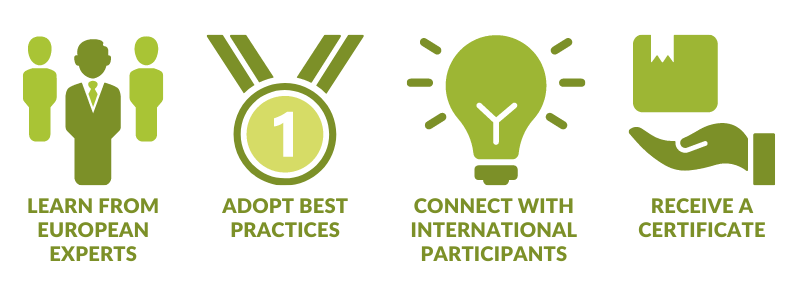Culturally sensitive approaches to perpetrator work
Learn new skills to offer more inclusive programmes

Learn How To
- Understand unique vulnerabilities, stressors, and challenges of perpetrators from migrant populations
- Understand the importance of intersecting identities and cultural factors when working with perpetrators from migrant populations
- Learn how racial prejudice, cultural bias and Eurocentrism affect perpetrator work
- Reflect on your own biases, cultural assumptions and challenge them
- Use culturally sensitive and responsive, as well as trauma-informed methods when working with perpetrators from migrant populations
Training Agenda
Session 1: Gaining a better understanding of perpetrators from migrant populations
- Learn about the specific factors, stressors, and beliefs that can lead to domestic violence perpetration
- Understand the importance and key elements of a culturally sensitive approach to intervention and collaboration
Session 2: Who am I, and what are my biases?
- Learn how to reflect on your own biases, cultural assumptions, and challenge them
- Learn about culturally sensitive, trauma-informed and culturally responsive methods when working with migrant perpetrators.
Session 3: Attaining practical skills
- Practice intervention strategies and techniques
The Course
Working with perpetrators from migrant populations requires a culturally sensitive approach that considers the multi-layered, intersecting cultural and social factors they face. Attaining these skills is important for implementing effective programmes that lead to accountability and behavioural change. This training is designed for professionals working in perpetrator programmes who want to improve their work with men from migrant populations. The training focuses on working with men with different migration backgrounds, including but not limited to:
- men living in the community and men living in camps,
- men fleeing from any country or continent,
- men speaking the language of the country of residence or men speaking only the language of the country of origin,
- second generation migrants
The Trainer
Daliah Lina Vakili is a German GBV & Migration expert and anti-racism trainer who has been working with refugees since 2017. In 2016, she graduated with an MSc from the School of African and Middle Eastern Studies (London) in Violence, Conflict and Development. Between 2017 and 2018, she worked in Lesvos with refugees, where she specialised on human trafficking, SGBV survivors, unaccompanied minors, and victims of torture. Since 2019, she has been working for WWP EN in the FOMEN project as a researcher and trainer, where she designed an anti-racism training especially for professionals who work with migrant men. Currently, she is supporting the team in the MOVE project.
